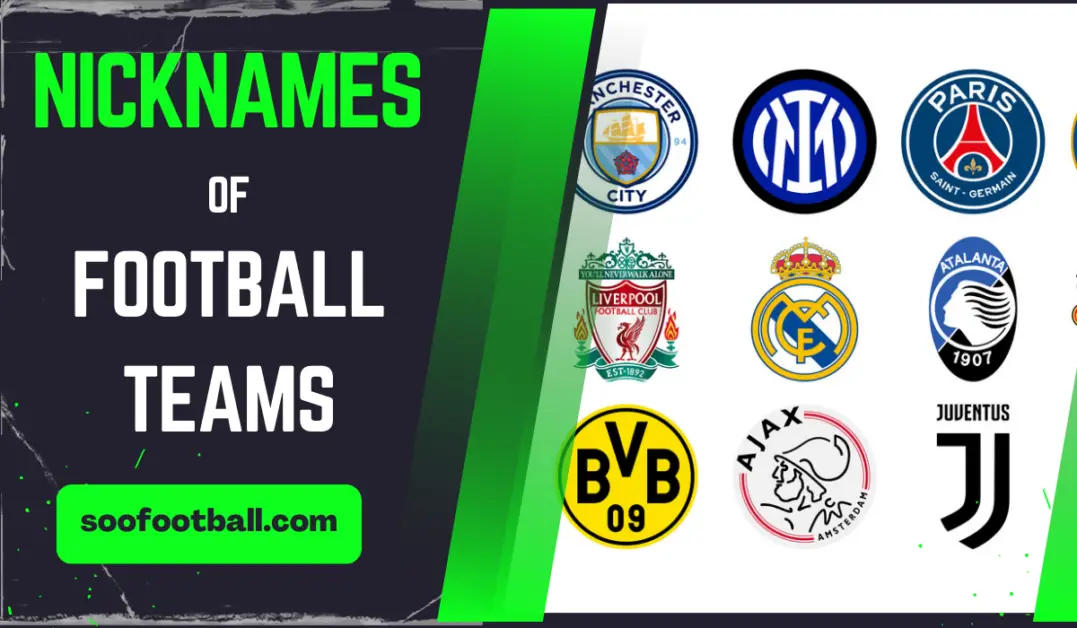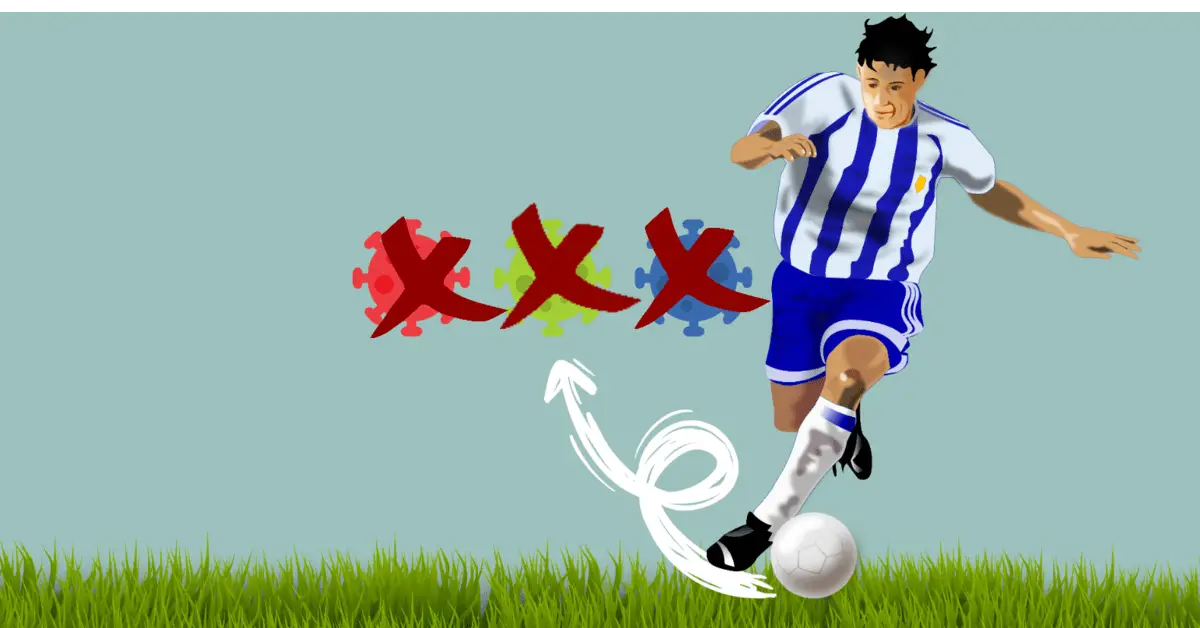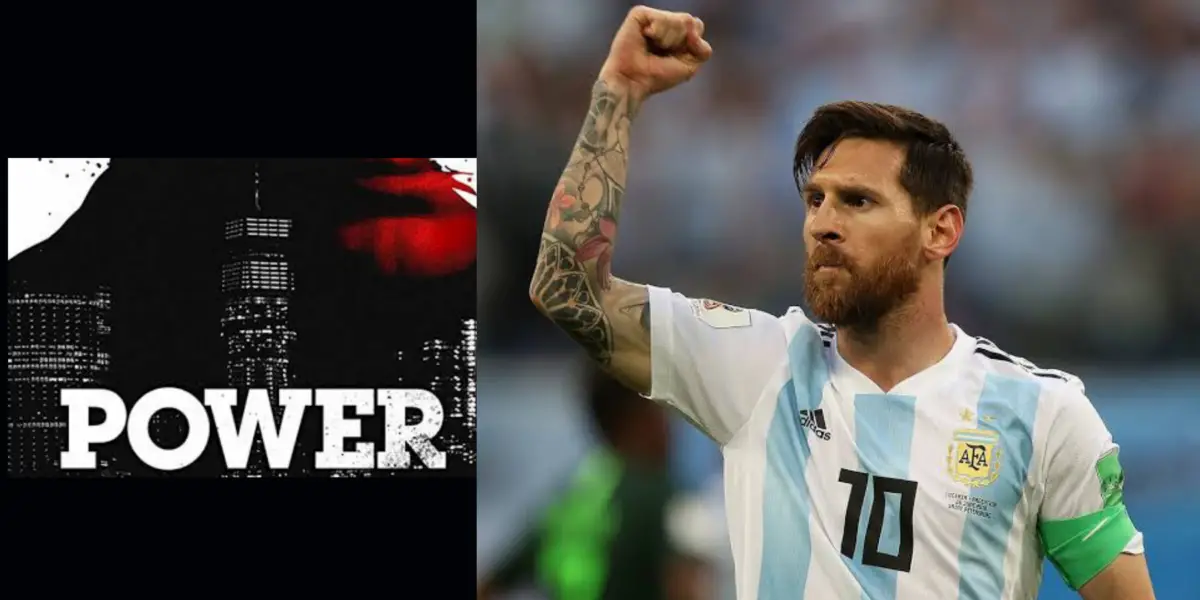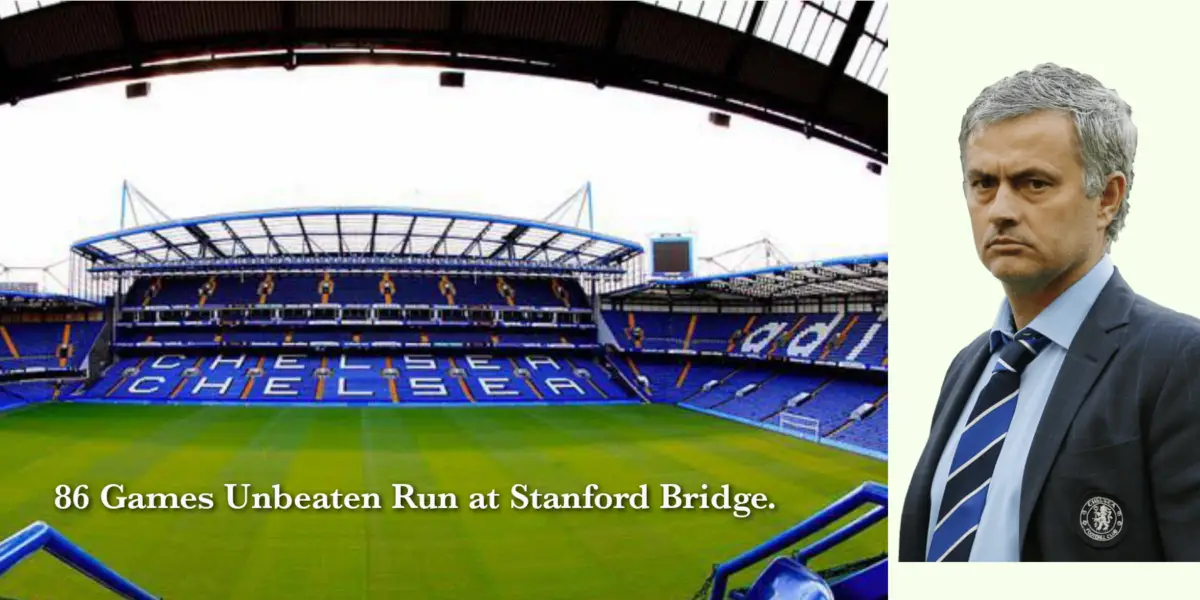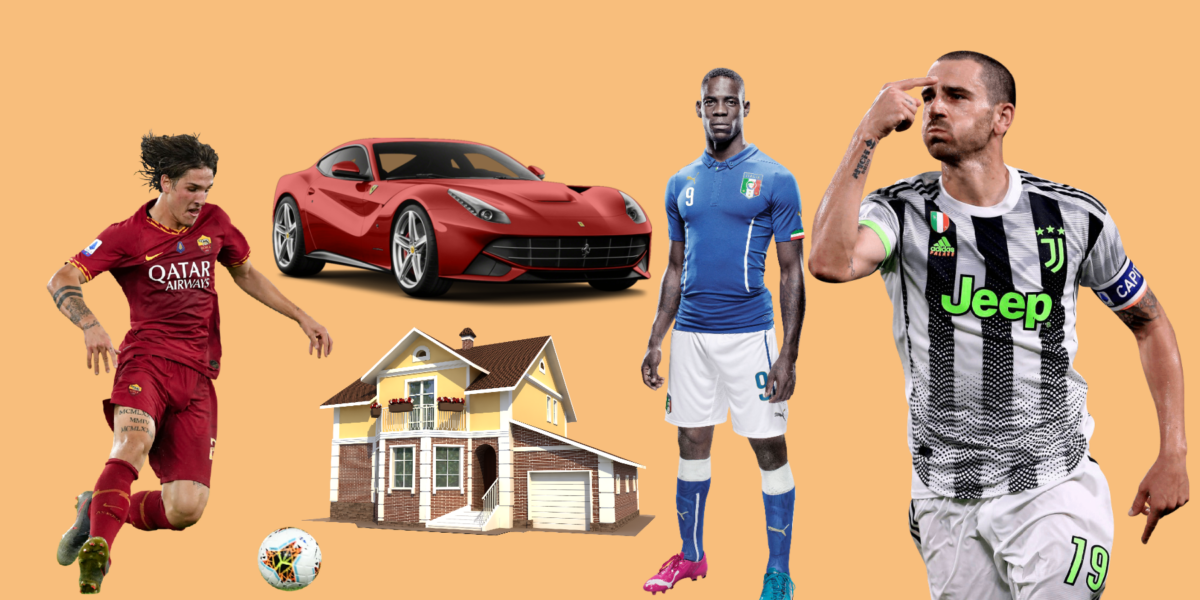Football is undoubtedly the best sport in the world and we follow our clubs through thick and thin. Chanting your club name with pride, but have you ever wondered about the idea behind football team nicknames?
It’s only natural that football teams have nicknames, just like we have nicknames for our friends, colleagues, family members, and celebrities. Even footballers have nicknames for each other and even stadiums!
Common Reason for Football Club Nicknames
Most common nicknames for teams are just shortened by the name of the club, a nice and simple way to shout about your club. For example, Tranmere Rovers are just known as ‘Rovers’ or Gillingham FC are known as the Gills, and some are just straightforward.
Some nicknames are shared between two clubs such as ‘The Boro’ which belongs to Middleborough and Stevenage but it’s more commonly used for Middlesborough and ‘Latics’ both used for Wigan Athletic and Oldham Athletic.
In cities such as Liverpool or Manchester, if you are meeting someone from that area, they are either red or blue due to the club colors of the teams or City or United due to the two teams in Manchester. The common nicknames for clubs can be straightforward, being the color of their kit.
Nicknames can also be an inspiration by plants or animals around the world. Hull City is known as ‘the tigers’ as they play in orange and black so it was an easy jump to make. Newcastle United are known as ‘the Magpies’ because of their iconic black and white stripes.
Clubs such as Everton, West Ham, and Arsenal though are less obvious for their nicknames and more about the history of the club or even religious associations such as Southampton known as the ‘Saints’.
Club Crest and Football Team Nicknames
Club names are part and parcel of sports culture, whether they reflect the geographical location, cultural or religious affiliation. Depending on what is on the club’s crest, that is where their nickname would come from, a shortened name for the club known to their fans and alike.
If an animal is etched onto the club crest, then that can indicate possible nicknames for that club, for example, Norwich City has a canary feature on their club badge which means they are known as the canaries.
The club crest of every football team in the world represents who they are and even the nickname for the club due to their history. Behind every club, their badge has a unique nostalgia.
Most English Football team nicknames are reasonably easy to trace, with some paying homage to the club’s crest, mascot, or trademark kit colors.
Football Fans Nicknames for clubs
This comes as no surprise with the rivalry of fans that they come up with their own nicknames for rival clubs which just stick, and have done for years on end.
Call them offensive if you like but supporters will come up with derogatory nicknames for their rival clubs. It’s part of life unfortunately, you will always get that when fans come up with names for the opposition.
Take the Heysel disaster for example in 1985 both sets of fans hate each other as Everton had won the league and in my opinion, had a strong enough team to win the European Cup. They have come up with individual nicknames for each club, but not too bad! Everton is known as ‘Bluenoses’ and Liverpool ‘Reds@*%e (I’ll let you decide on that!)
Nicknames are more than just quirky informal labels, they express the club’s rich history which is important to fans.
Every fan of every football club will have nicknames for their rival football teams.
Football Teams Nicknames
See below a list of 100 European football team nicknames.
| # | Football Club | Nickname |
|---|---|---|
| 1 | AC Milan | Rossoneri |
| 2 | Ajax Amsterdam | Godenzonen |
| 3 | Arsenal | Gunners |
| 4 | AS Roma | I Giallorossi |
| 5 | Atalanta | La Dea |
| 6 | Athletic Bilbao | Los Leones |
| 7 | Atlético Madrid | Los Colchoneros |
| 8 | Barcelona | Blaugrana |
| 9 | Bayern Munich | Die Roten |
| 10 | Benfica | Águias |
| 11 | Borussia Dortmund | Die Schwarzgelben |
| 12 | Celtic | The Bhoys |
| 13 | Chelsea | The Blues |
| 14 | Club Brugge | Blauw-Zwart |
| 15 | Dynamo Kyiv | Bilo-Syni |
| 16 | Everton | The Toffees |
| 17 | FC Basel | RotBlau |
| 18 | FC Porto | Dragões |
| 19 | Feyenoord | De Club van Zuid |
| 20 | Fiorentina | La Viola |
| 21 | Galatasaray | Cimbom |
| 22 | Hamburg | Die Rothosen |
| 23 | Inter Milan | Nerazzurri |
| 24 | Juventus | La Vecchia Signora |
| 25 | Lazio | I Biancocelesti |
| 26 | Liverpool | The Reds |
| 27 | Lille | Les Dogues |
| 28 | Manchester City | The Citizens |
| 29 | Manchester United | The Red Devils |
| 30 | Marseille | Les Phocéens |
| 31 | Napoli | I Partenopei |
| 32 | Newcastle United | The Magpies |
| 33 | Olympiacos | Thrylos |
| 34 | Paris Saint-Germain | Les Parisiens |
| 35 | PSV Eindhoven | Rood-witten |
| 36 | Rangers | The Gers |
| 37 | Real Betis | Los Verdiblancos |
| 38 | Real Madrid | Los Blancos |
| 39 | Red Bull Salzburg | Die Bullen |
| 40 | RSC Anderlecht | Les Mauves et Blancs |
| 41 | Sampdoria | I Blucerchiati |
| 42 | Schalke 04 | Die Knappen |
| 43 | Sevilla | Los Rojiblancos |
| 44 | SL Benfica | Encarnados |
| 45 | SL Benfica | Águias |
| 46 | Sporting CP | Os Leões |
| 47 | SSC Napoli | Partenopei |
| 48 | Standard Liege | Les Rouches |
| 49 | Tottenham Hotspur | Spurs |
| 50 | Valencia | Los Che |
| 51 | Villarreal | El Submarino Amarillo |
| 52 | West Ham United | The Hammers |
| 53 | AC Ajaccio | L’ours |
| 54 | AC Ajaccio | Les olae |
| 55 | AC Le Havre | Les Ciel et Marine |
| 56 | AJ Auxerre | Les Auxerrois |
| 57 | Ajax Amsterdam | Amsterdammers |
| 58 | Arsenal | The Gunners |
| 59 | AS Monaco | Les Monegasques |
| 60 | AS Nancy | Les |
| 61 | AS Saint-Étienne | Les Verts |
| 62 | Aston Villa | The Villans |
| 63 | Atletico Bilbao | Los Leones |
| 64 | Atletico Madrid | Los Rojiblancos |
| 65 | BATE Borisov | Yellow-Blues |
| 66 | Bayer Leverkusen | Die Werkself |
| 67 | Besiktas | The Black Eagles |
| 68 | Birmingham City | The Blues |
| 69 | Borussia Mönchengladbach | Die Fohlen |
| 70 | Celta Vigo | Os Celestes |
| 71 | Club América | Las Águilas |
| 72 | Club Brugge KV | Blue-Black |
| 73 | Club Nacional de Football | Bolsos |
| 74 | CSKA Moscow | Red-Blues |
| 75 | Deportivo La Coruña | Los Blanquiazules |
| 76 | Dinamo Zagreb | The Blues |
| 77 | FC Basel | Bebbi |
| 78 | FC Barcelona | Culés |
| 79 | FC København | Lions |
| 80 | FC Nantes | Les Canaris |
| 81 | FC Rostov | The Yellows-Blues |
| 82 | FC Schalke 04 | Die Königsblauen |
| 83 | FC Shakhtar Donetsk | The Miners |
| 84 | Ferencvaros | The Green Eagles |
| 85 | FK Crvena Zvezda | The Red-Whites |
| 86 | FK Partizan | The Blacks and Whites |
| 87 | Fulham | The Cottagers |
| 88 | Galatasaray | The Lions |
| 89 | Getafe | Azulones |
| 90 | Glasgow Rangers | The Teddy Bears |
| 91 | GNK Dinamo Zagreb | Modri |
| 92 | Hertha Berlin | The Old Lady |
| 93 | HNK Hajduk Split | The Whites |
| 94 | Hull City | The Tigers |
| 95 | Hvidovre IF | The White Wolves |
| 96 | Inter Milan | Il Biscione |
| 97 | KRC Genk | The Smurfs |
| 98 | LASK | The Linzers |
| 99 | Leeds United | The Peacocks |
| 100 | Legia Warsaw | The Legionnaires |
UK Football Team Nicknames
Arsenal – Gunners
In 1886 a group of workers from the Woolwich Arsenal Armament Factory formed a football team. The nickname compliments the club badge, which incorporates a cannon.
The factory was called Royal Arsenal which produced military weapons.
West Ham – The Hammers, The Irons
Since the club formed in 1895, they have always had two diagonally crossing hammers on their club badge.
Due to the location of Thames Ironworks where they were formed, cries of ‘Come on you Irons’ from the crowd were recognized as the original nickname and still use today.
Manchester City – The Citizens, City
The nickname simply evolves from the City of Manchester implying that fans are citizens of Manchester. Considered a dig at their local rivals.
City is just a shortened term of the chant from Manchester City fans in the stands.
Manchester United – The Red Devils
It’s all down to the great Sir Matt Busby. It’s said that he liked the nickname of Salford Rugby Club and the aura it created and wanted them to be a physical, defensive, and tough tackling side that they would be the Red Devils too.
The rest is history as they say.
Liverpool – The Reds
Liverpool was originally red tops and white shorts and in 1964 it was the great Bill Shankly who you could say was the founder of the all-red kit and the nickname ‘The Reds’ was born.
Everton – The Toffees
Everton’s nickname ‘The Toffees’ has been with the club since its formation in 1878, where a sweet shop located near their first home of Anfield. The owners there would sell Everton toffees to the crowd on their way to watch Everton play.
When they moved out of Anfield due to rent going up and relocated to Goodison Park, they found themselves closer to another sweet shop selling the same toffees, which are still available today.
Brighton & Hove Albion – Seagulls
Located in the South East of England by the sea, they were originally called ‘Dolphins’ until 1976 when the fans adopted the nickname ‘Seagulls’ which the following year the club added to their club badge.
Crystal Palace – The Eagles, The Glaziers
In 1973, due to their high profile manager Malcolm Allison, he adopted the nickname ‘The Eagles’ from Benfica who at the time were one of the most successful teams in Europe.
They are also known as ‘The Glaziers’ about the famous glass palace.
Newcastle United – The Magpies, The Toon
Newcastle is often referred to as ‘The Magpies’ because of the famous black and white stripes which are similar to the magpie bird.
‘The Toon’ refers to the city of Newcastle due to the way why residents say the word town and St. James Park their home ground is located in the town center.
Leicester City – The Foxes
Leicestershire is considered wildly for its fox hunting in England and it wasn’t until 1948 that the club crest had the face of a fox emblazoned on it. The nickname was born.
Norwich City – The Canaries
The club is nicknamed ‘The Canaries’ after the history of breeding the birds in the area and the team’s kit color represents the bird as well.
Luton Town – The Hatters
The club was founded in 1885 and nicknamed ‘The Hatters’ for their rich history of hat making. By the 1930s, the town was producing over seventy million hats a year.
Reading – The Royals
Nicknamed ‘The Royals’ as its location is in the Royal County of Berkshire
Huddersfield Town – The Terriers
The nickname was introduced in the 1969/70 season, acknowledging the terrier-like qualities of a young side and to this day it just stuck.
Sunderland – Black Cats
Sunderland’s nickname ‘The Black Cats’ comes from a theory of a lucky black cat that was found in the club’s dressing room in 1909. It was said to be responsible for turning the club’s fortunes.
Stoke City – The Potters
Stoke on Trent is home to the pottery industry in England and is commonly known as the Potteries. Residents are known as ‘The Potters as well as their football club.
Rotherham United – The Millers
The nickname ‘The Millers’ comes from Rotherham’s strong industrial history of flour milling.
Watford – The Hornets
In 1959 Watford changed their team colors to gold and black, similar colors to a hornet where afterward a vote was taken for the new nickname.
Hornets were voted and to this day are still their nickname.
Derby County – The Rams
Derby’s nickname ‘The Rams’ stems back 100 years ago when the residents adopted the emblem of the Ram that accompanied the army regiment at the time.
Sheffield Wednesday – The Owls
Ever since they moved to the Sheffield district of Owlerton in 1899 they have been known as the Owls ever since, even though they have a picture of an Owl on their club badge.
It has nothing to do with Owls!
Conclusion
As long as football clubs continue to be formed they will find themselves picking up a new nickname for the team and fans will soon pick up nicknames for their rivals.
Whether that will be obvious or even based on the origin of the club’s existence or nothing to do with the club and just the area, remains to be seen.
It’s only natural that the football club has nicknames.

